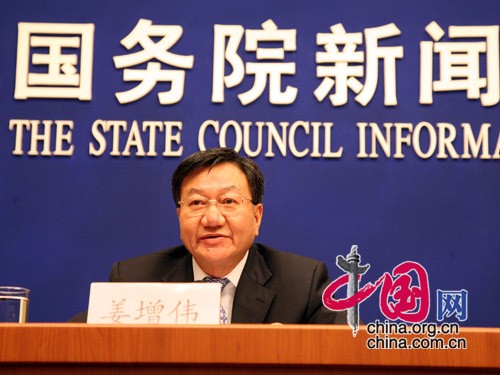|

|
|
Jiang Zengwei, Vice Minister of??Ministry of Commerce (MOC). |
China won't resort to trade protectionism with a plan similar to the "Buy America" provision that bans foreign products in domestic stimulus projects, said a Ministry of Commerce (MOC) official Monday.
"We won't practice 'Buy China'," said Vice Commerce Minister Jiang Zengwei at a press conference. "We'll treat domestic and foreign products equally as long as they are needed."
The U.S. Senate last week voted to soften, not remove, the provision included in its roughly 900 billion-U.S. dollar stimulus plan that requires all public works projects funded by stimulus dollars to use only U.S.-made iron and steel.
"It's impossible to meet a country's market demand with only domestic products amid world economic integration ... Why should we turn to trade protectionism under the current situation (of global financial crisis)?" said Jiang.
He urged all countries to further promote international trade, noting that about 20 percent of commodities in China need to be purchased from international markets, such as industrial raw materials, farm produce and luxury items.
The "Buy America" provision has invited concerns from major trading partners of the U.S., including Europe, Canada and Japan. Economists warned it could trigger trade wars to the detriment of the already faltering world economy.
China must be wary of signs for a possible protectionist comeback, said Zhang Xiaoji, a foreign economic relations researcher at the Development Research Center of the State Council, a think tank under the Cabinet.
China, which relies heavily on it's exports, will suffer a heavy blow if trade protectionism gains influence in the face of the deepening global crisis, said Zhang.
He told Xinhua China's own massive stimulus package will "certainly give a shot in the arm to the country's imports."
"We should not only oppose trade protectionism in other countries but also support global trade ourselves," said Zhang, suggesting better opening up China's domestic market as the country's trade surplus remains large.
China unveiled a 4 trillion-yuan (586 billion?U.S. dollars) stimulus plan in November to boost domestic demand and prop up growth. Most of the investment was directed at infrastructure.
(Xinhua News Agency February 9, 2009)